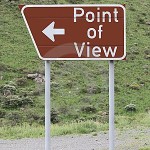I have very strong views.
I do not often share them in public. Why?
“Social media” communication can become persecution. If one stands for a cause he may be lauded by some, vilified by others. If one stands against a cause she may be attacked for her cultural intolerance in one group, used as the poster child for another group’s fund raising event.
Am I afraid to voice my perspective? Is timidity or cowardice my vice?
Some, I’m sure, would affirm both questions.
 My thesis—social media communication can become persecution—is making a claim that cyber bullying takes different forms. A few weeks ago I wrote about my brother Charlie and his good work as a public theologian in Baltimore. There I began a list, a rubric, a standard of etiquette, for communication principles in the public square.
My thesis—social media communication can become persecution—is making a claim that cyber bullying takes different forms. A few weeks ago I wrote about my brother Charlie and his good work as a public theologian in Baltimore. There I began a list, a rubric, a standard of etiquette, for communication principles in the public square.
 I continue the list of questions and quotations without comment or answer. My normal mode of teaching (even in social media!) is to ask questions and frame responses in (hopefully!) an even-tempered, caring, collaborative format. I hope that everyone finds something which moves and motivates toward a more positive, pro-active vision of social media communication.
I continue the list of questions and quotations without comment or answer. My normal mode of teaching (even in social media!) is to ask questions and frame responses in (hopefully!) an even-tempered, caring, collaborative format. I hope that everyone finds something which moves and motivates toward a more positive, pro-active vision of social media communication.
- Does a review or report of events six months after an incident receive any attention from me via social media even if it goes against my POV?
 Does “new knowledge” automatically out rank “old knowledge?”
Does “new knowledge” automatically out rank “old knowledge?” - Do I only converse with those who agree with me? Do I respect other people even if I very much disagree? Do I try to understand how or why someone else may think differently than I, even if I thoroughly disagree?
- Should I try to understand that social commentators may vary in their approach? In their outreach? Do I understand that some responses will be from activists, others from peace-keepers, others from those even more cautious?
 Does being cautious mean I am non-committal?
Does being cautious mean I am non-committal?- Do I praise those with whom I generally disagree when their actions are good, righteous, or generous?
- If I am politically liberal do I listen to conservative voices? If I am politically conservative do I read those who are liberal?
- Do I only care about one social concern or is my focus broadly caring for all social concerns?
 Have I written a position paper on the issue I am confronting? Does writing keep me from under or over stating a position in social media?
Have I written a position paper on the issue I am confronting? Does writing keep me from under or over stating a position in social media?- How do I communicate with my comrades about an opposing person or group in private settings? Do I malign, pre-judge, or misrepresent another or their POV? Am I even-handed when I report perspectives?
- Do we truly care about dialogue? Or do we simply want to dictate our own dogmas to others, demanding others’ thoughtless acceptance of whatever position we deem “right”?
- By whose authority do we subscribe to one position, one POV over another? Who becomes the judge by which judgments are made, and who made them “the boss of me?”
- If I am consistently told I cannot understand another person’s POV, what will compel me toward compassion or empathy? If there is to be civility, collegiality, conviviality, then should not openness be a two-way street? If one party is characterized in the negative, without opportunity for anything more than total agreement or capitulation, what will the outcome be?
 For the sake of the gospel, does any given issue separate people from the saving work of Christ? Is there more emphasis in a person’s life on the culturally driven issues? Will people dig in their heels against Jesus because Jesus is being thrust upon them through a cultural lens?
For the sake of the gospel, does any given issue separate people from the saving work of Christ? Is there more emphasis in a person’s life on the culturally driven issues? Will people dig in their heels against Jesus because Jesus is being thrust upon them through a cultural lens?- Do we first respond to situations in political – cultural terms or do we begin discussions with transcendent – immutable principles?
- Do we ever question or reconsider the assumptions, positions of those with whom we normally agree?
- Are we winsome and attractive in our approach to people or do we demand and dictate?
 Is our collaboration with others a true give-and-take or is our way the only way?
Is our collaboration with others a true give-and-take or is our way the only way?- Do our words divide or unite people? Do we only speak to, about, or from a specific demographic position? Is our voice strident or strong? Do we clearly present a POV while listening to other POV’S or is our POV the only POV?
- After five Dallas police officers were murdered, President George W. Bush gave a speech at the memorial service, July 12th, 2016. These words should ring in our ears:
Too often, we judge other groups by their worst examples – while judging ourselves by our best intentions. And this has strained our bonds of understanding and common purpose. But Americans, I think, have a great advantage. To renew our unity, we only need to remember our values. We have never been held together by blood or background. We are bound by things of the spirit – by shared commitments to common ideals.
May we all practice the words of Titus 3.1-2. May our spirit be generous, our attitude gracious, our respect clear, our care obvious. Dr. Mark Eckel is the president of The Comenius Institute.


I think the most important virtues in public dialogue are godly conviction, personal mandate, love, authenticity, and consistency.
These matters of practice from the heart are difficult for others to judge. It is always essential that we judge ourselves and stay in right relationship with God. I have learned this: There is no assurance that people will understand your intent or respect your voice when you speak to topics deemed controversial and beyond ones current knowledge/experience. Sometimes the prophetic voice of Christ must come without fear of being misunderstood by others.
I often remind people that the few admiring quotes (In fact, the same 3-5 quotes) we often hear from Dr. Martin Luther King cannot convey the deep distrust that most Americans had of him when he lived. His words and work gained respect and admiration long after his death.
This is the risk of being outspoken. Not many people have the courage of conviction to be willing to be perceived in a bad light.
Just as a pastor’s approach differs from the approach of an evangelist, I believe we need to understand our particular mandate from God, respect the mandate of others, even if we don’t understand what others are doing and lack personal context to understand.
Some leaders are called to be a voice of calm in times of turmoil, preferring to avoid the disturbance of people’s conscience and gradually help their complacency. Other leaders are called to “agitate.” The former slave and abolitionist Frederick Douglass famously said,
“Those who profess to favor freedom and yet depreciate agitation, are people who want crops without ploughing the ground; they want rain without thunder and lightning; they want the ocean without the roar of its many waters. The struggle may be a moral one, or it may be a physical one, or it may be both. But it must be a struggle. Power concedes nothing without a demand. It never did and it never will.”
You are right. Every person must decide for themselves.
In my position I have decided to withhold comments about political issues, for instance, knowing my thoughts might bring more heat than light.
Two issues, however, will always receive my full-throated, biblical, cultural resolve: life and freedom. I stand with all whose life might be threatened, womb to tomb. I stand with all whose freedoms may be in jeopardy, constitutionally or individually.
We are all called to various tasks. I am proud to stand with you, pastor, for the gospel: it’s temporal applications and eternal anticipations.
Well said Mark! As young folk say, “Do you!” We would modify that to say, “Do you…through Christ!”